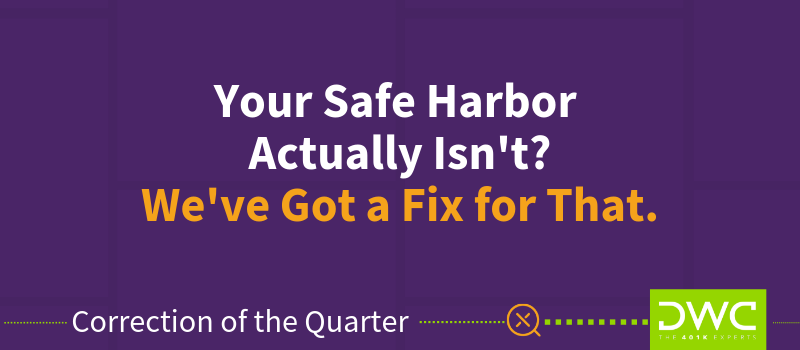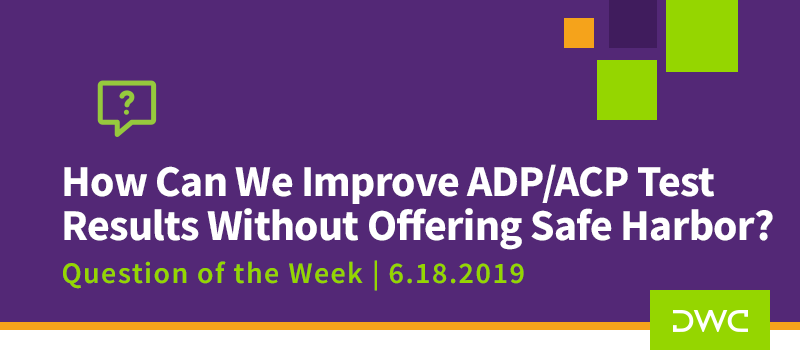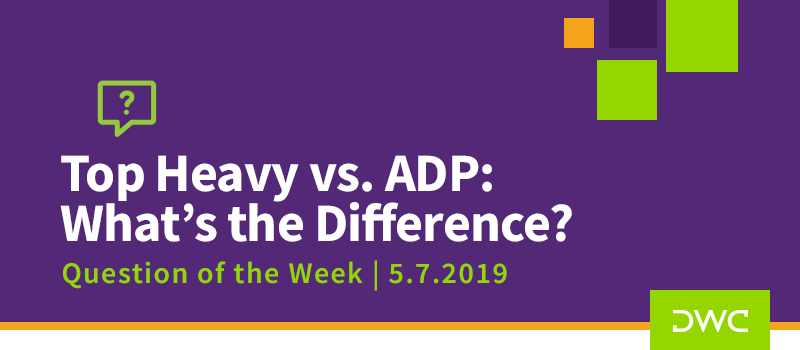Facts My company sponsors a safe harbor 401(k) plan so that all of the highly compensated employees can maximize their deferrals without worrying about failing the ADP test each year. Although we fully intend to make the same level of contribution for the HCEs that we do for the non-HCEs, we would prefer to not to be required to do so in order to ...
Read More
Plan Document
A properly drafted document is the foundation of achieving the company's objectives and keeping the plan in operational compliance.
Plan Compliance
We have a fundamental understanding of how critical plan compliance is to both the IRS and Department of Labor.
Defined Benefits Services
We work with business owners and investment advisors to determine what makes the most sense by providing a detailed cost benefit analysis.
Mergers, Aquisitions & Related Company Analysis
The DWC team is well-versed enough in the nuances and is ready to help you navigate the situation.
Plan Corrections
DWC's extensive experience with both the IRS and Department of Labor voluntary correction programs allows us to help you address just about any accident that might happen.
Government Audits
Being selected for an audit can feel overwhelming, but the process doesn't have to be.
Investment Advisor Support
DWC has a long history of successfully partnering with investment advisors.
We bring decades of experience, supported by the resources to deliver comprehensive solutions for your clients. Our consultants understand the importance of your relationships and will work seamlessly alongside your team.



















